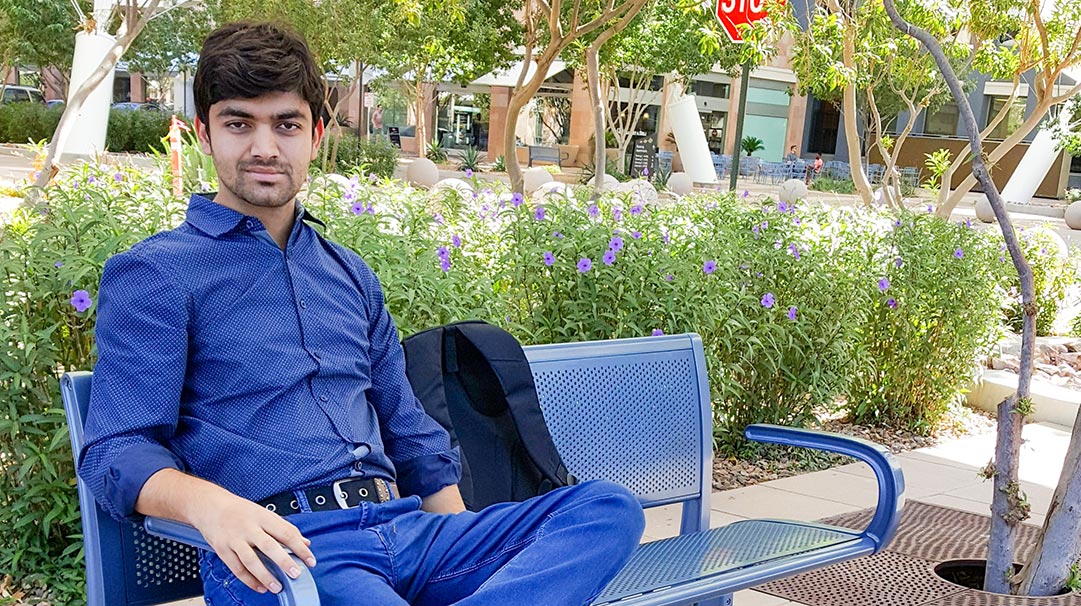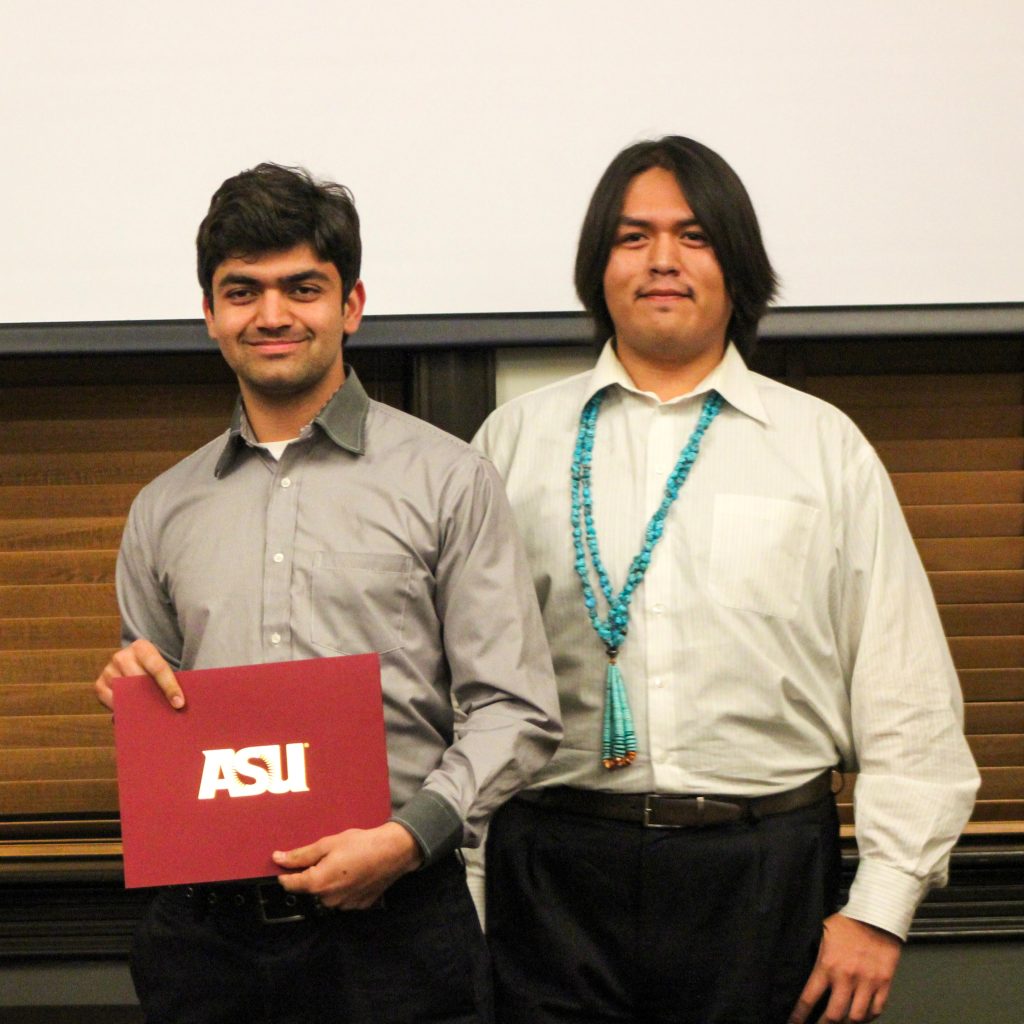Single-minded focus drives this engineer toward a renewable future

Noman Khan has a single-minded focus when it comes to clean energy: “It’s simple: We need clean energy.”
Noman Khan has a single-minded focus when it comes to energy: “It’s simple: We need clean energy.”
He wants all of his friends and colleagues to stay focused, professional, and single-minded about the future of Pakistan. He believes that to make a difference, they must learn and create, invest time and money, make sacrifices, and build everything from scratch.
“We must explore innovative ideas, new research, and new technologies to get out of the vicious circle that an energy crisis creates. We have inherited a broken system, and we must rise up to the task and rid Pakistan of energy crises.”
Noman is from Swabi in the Khyber Pakhtunkhwa province. Noman earned his master’s degree in materials for energy storage and conversion from USPCAS-E at UET Peshawar. He is currently working as an assistant director in the Pakistan Civil Aviation Authority, which is akin to the Federal Aviation Administration (FAA) in the United States.
He hopes to continue his research but says he is currently preoccupied with his job, so it’s hard to focus on academics and research. But he is learning more entrepreneurial skills inspired by Ken Mulligan, the instructor at ASU, who has taught entrepreneurship to the USPCAS-E visiting scholars.
“I see myself as not just a researcher but also someone who puts my research into practice and sells it. Research and development are key to tackling our energy problems. Educating the people, bringing more people to this field, and then creating a critical mass of researchers who can then join forces will also be crucial.”
Noman also wants to establish a small think tank of fellows to discuss energy and ideas along with social and economic issues.
“It’s also my dream to establish a ‘freestyle’ school and teach science interestingly and innovatively and encourage creativity, free-thinking, participation, initiative and leadership.”
“For Pakistan to make progress, I have a simple formula: we need more billionaires, more Nobel Prizes, more Academy Awards, more Olympic gold medals. I will work to achieve this end in one way or another.”
Noman had an engineering mindset from a very young age.
“Engineering was fascinating to me right from the beginning of my school days. My dad purchased a Pentium-II computer during my mid-school years, and I was fascinated with what it was capable of. I would read articles in Microsoft Encarta Encyclopedia, and that was a time when the internet was virtually non-existent in Pakistan. I would spend hours reading articles on science, and that really shaped my future course for the years to come,” he recalls.
This put him a class all his own, and he admits, “I gave a hard time to my science teachers because I could read more about my subjects than they could.”
But the path was not a smooth one for Noman. His family endured personal tragedies and financial crises. He was able to continue his studies through hard-earned scholarships.
Today he sees that hard work has paid off in the end.
“Engineering has not only changed me and my life for the better, but it has also changed our collective lives in this country. Our standard of living is many times better than it was a decade ago,” Noman explains.
Noman is still an avid learner, not just in engineering but in other sciences as well, including renewable energy, astronomy and astrophysics.
Noman explains: “It makes me more pragmatic, empowered and non-superstitious. The scientific mindset is a great gift, and one should strive hard to achieve it.”
Noman was drawn to study engineering as a result of his personal experiences with energy shortages, shortages that dominated his life. It made it easy for him to choose a course of studies—he knew that he wanted to fix the electricity shortage that loomed over his life—and negatively impacted his country and its economic prospects.
He explained, “Pakistan’s energy problems had made our lives miserable for a very long time. We were mostly up at nights, frying in the scorching heat of summer, and it was literally a part of every discussion.
And I always hoped that someday I’d be able to do something about it.”
Then came along USPCAS-E and rest, as they say, is history. Noman was in the final year of his undergraduate studies at UET Peshawar when USPCAS-E was established. The new center conducted seminars and workshops and encouraged students to look into programs being offered. Noman says he didn’t think twice.

“My cohort was the first batch in the energy materials program. And it was the start of a great learning journey that I will always cherish.”
Noman participated in the exchange program at ASU in Fall 2016.
“I worked on proton exchange membrane fuel cells during my ASU exchange program. With my colleagues, I developed a new catalyst for proton exchange membrane fuel cells that could lead to better fuel cell performance and lower the cost at the same time. I also published a paper on the same topic.”
USPCAS-E was a life-changing experience for Noman. Not only did he learn engineering, but he also gained other things that he believes are perhaps more important. His experience with friends and colleagues in the U.S. significantly changed his thinking process.
“I worked with world-class faculty and also in a setting that was highly professional and innovative too. The cultural experience, international exposure to peoples from all parts of the world, was an absolute blessing. I have a very different (and more accurate) worldview now than I did a few years ago.
“As an exchange scholar, I visited many places that I dreamed of visiting. I learned about the American way of life, including their politics, education, cities, energy systems, and so much more. USPCAS-E is a great idea, and it will shape Pakistan’s energy future in the years to come. The young men and women equipped with this knowledge will make a huge difference in my country.”
“The most important aspect of my research was the simple realization that to solve our extraordinary energy problems (and associated problems), we will have to come up with extraordinary solutions.”
He believes that climate change, in particular, has totally changed how future energy systems should look. He thinks fuel cells show a lot of promise, using hydrogen to electrochemically produce electricity without also producing carbon dioxide is exciting.
“For me, the fuel cell was ‘love at first sight’ because it is so simple yet a lot more promising than any other energy system, and one day, it will, in one way or another, change the world.”
He concedes that we are a long way from that future and that more investment and research are needed to address materials and cost challenges that limit fuel cell development.